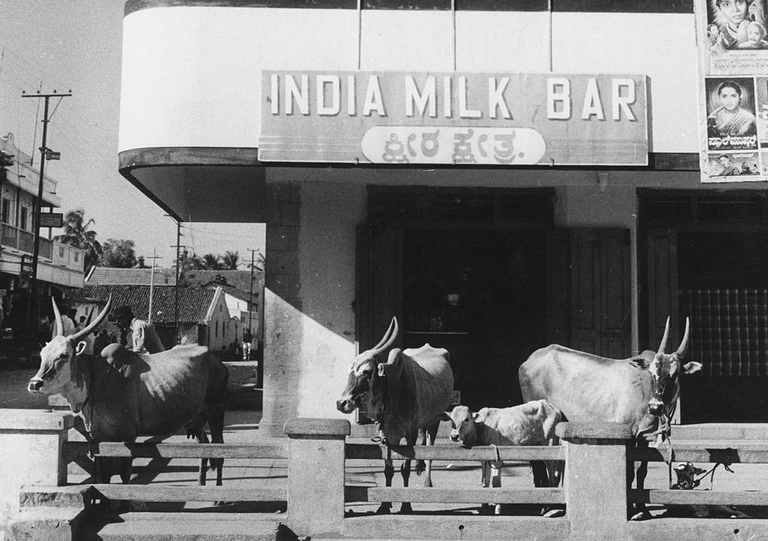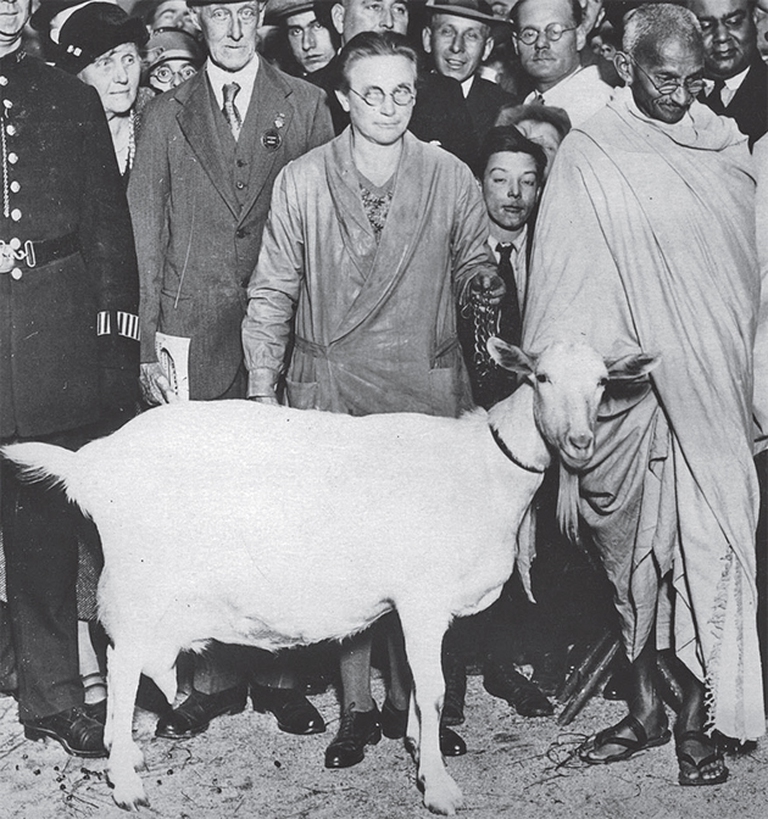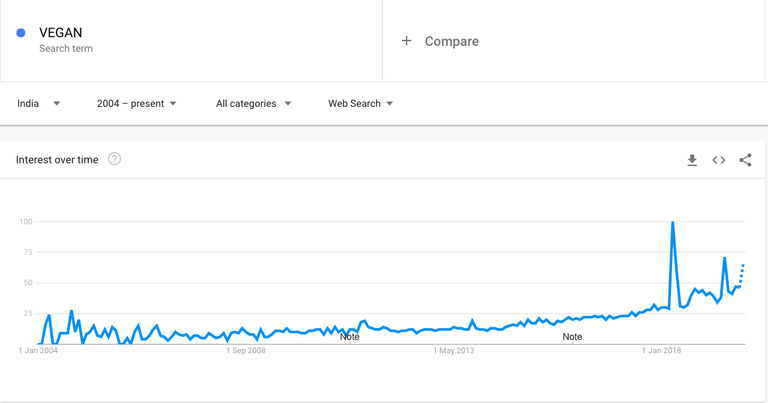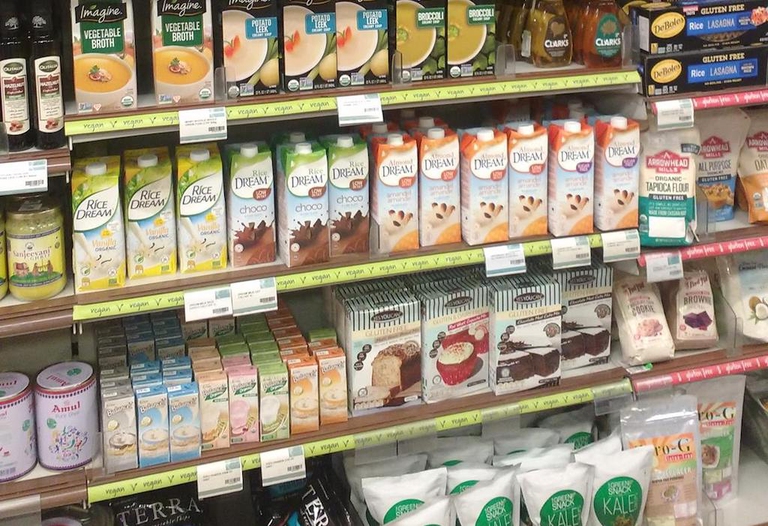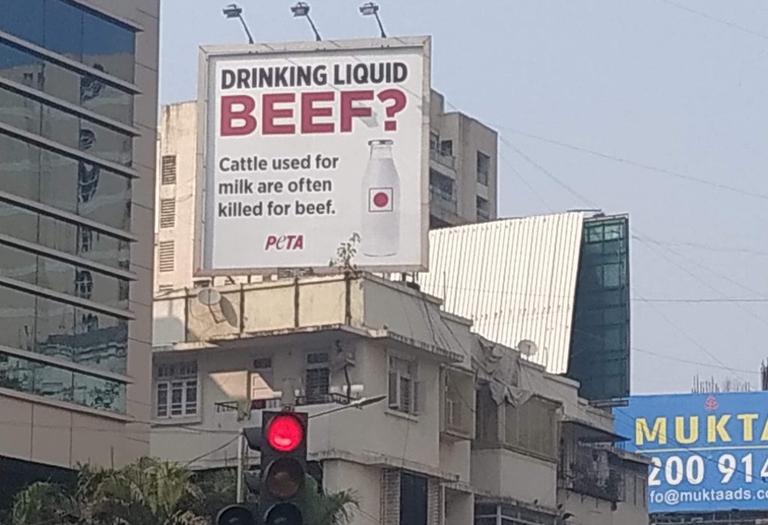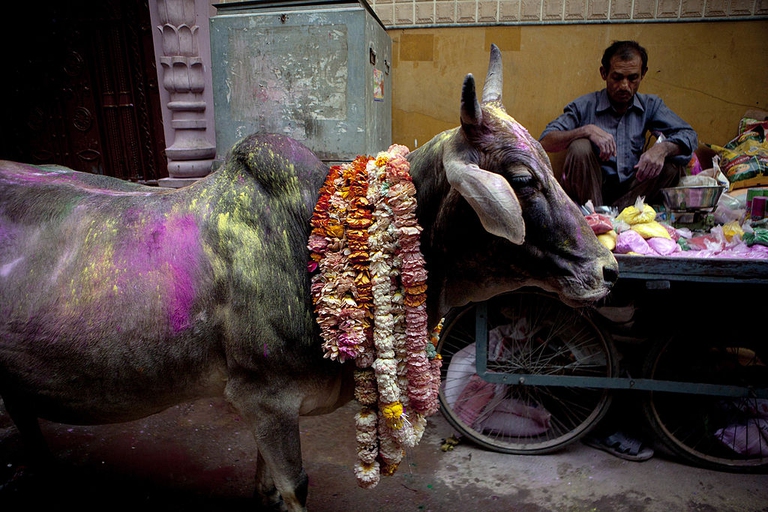
100,000 mink will be culled in Spain after testing positive for coronavirus. Meanwhile, the Netherlands abandons mink farming completely.
Let’s look at the reasons behind the growth of veganism in India, as a small yet vocal section of the population turns towards this diet and lifestyle in the largest milk producing country in the world.
India is expected to produce 175 billion litres of milk in 2019, making it the largest milk producer in the world. Forecasts suggest production of this commodity will increase by 4 per cent in 2020, which equates to an additional 9.7 billion litres. Having said this, a new movement is growing in India – veganism. While absolute figures on the number of vegans aren’t available due to the sheer novelty of this dietary and lifestyle choice, there are ample grounds to show that the shift towards veganism in India is growing at an unprecedented rate.
India has long been touted as the vegetarian capital of the world. According to government surveys, 23 to 37 per cent of Indians are estimated to be vegetarian, though this number may actually be lower (20 per cent) based on new research by US-based anthropologist Balmurli Natrajan and India-based economist Suraj Jacob. While one can debate which of these percentages is most accurate, what is certain is that both vegetarians and non-vegetarians in India have traditionally been heavy consumers of dairy products. What is also certain is that dairy and cows are widely considered inherent to the cultural fabric of India, just like the principles of ahimsa or nonviolence.
Incidentally, Mahatma Gandhi, who led India in becoming independent from colonial rule and is widely considered to be one of the foundational proponents of ahimsa, shied away from dairy consumption after being disgusted at learning about phooka, or “cow-blowing”, a traditional dairying practice where air is forcibly blown into the cow’s vagina to stimulate milk production. Gandhi vowed not to consume the products of such perverse violence, he wrote in his autobiography. Unfortunately, cow-blowing isn’t the worst of the practices used in India. For example, to keep mothers lactating, a khalbaccha — a makeshift calf — is placed next to them by using dead calves with their head stuffed with hay to create a dummy and fool cows into producing milk. The smell of the dead bodies is camouflaged with hay and balm; hence, the cows continue to get milked, while the calves’ remains are sold.
Keeping this context in mind, two different movements are taking root in India at the moment. On the one hand, as the economy grows and people’s disposable incomes increase, there’s more consumption of meat and dairy products. On the other, as people are exposed to social media and as the world becomes smaller due to globalisation, veganism is increasingly being embraced.
When it comes to spreading awareness and bringing about change, social media plays an undeniable role. The surge in videos showing cruelty inflicted on animals in the dairy and meat industries is one of the reasons behind the quick uptake of the vegan cause, as the continuous growth of pages like Arvind Animal Activist and Vegan Outreach India goes to show. For example, Arvind Animal Activist’s video debunking the argument that “plants feel pain” garnered almost four million views on Facebook alone since it was posted two months ago.
The increase in the number and engagement capability of vegan influencers among the internet-savvy young generation has proven to be pivotal in the rise of veganism in India. Instagram as a platform has helped make a vegan diet look more aesthetically pleasing, busting the stereotype of it just consisting of “twigs and grass”. Such platforms have helped people see it for what it really is: a compassion-driven attempt to live an ethical, sustainable and healthy lifestyle without contributing to animal suffering.
There’s also a massive increase in young people talking more about issues like animal rights and sustainability and this has led to restaurants and supermarkets catering to this demand, offering more vegan options. While a typical Indian diet is predominantly vegan-friendly, there’s always the odd ghee, cream or yoghurt that ends up in dishes without being explicitly stated in the ingredients list or menu. While currently non-vegetarian (including egg) products are labelled with a red dot and vegetarian products labelled with a green dot (as seen in the image below), there has been a greater demand to label vegetarian products with a brown dot and vegan products with the green dot symbol to distinguish them further by indicating that they don’t contain any animal ingredients or cruelty.
There has been an exponential increase in fully vegan restaurants in cities like Mumbai, Pune, Hyderabad, Bangalore and Goa, and other establishments are increasingly labelling their food items “vegan” and “veganisable”, which means they can be altered to make them vegan. Supermarkets have vegan aisles and vegan e-commerce stores are blooming, making vegan products accessible even in small cities and towns.
Increasing awareness about the impact of animal agriculture on the environment has helped push the switch towards veganism. For example, livestock contributed 63.4 per cent of total greenhouse gas emissions from agriculture in India and the country’s methane emissions from livestock are the highest in the world. From Greta Thunberg talking about going vegan to information on how the meat and dairy industries are wreaking havoc in a country already facing water scarcity, hunger, pollution and climate change, people in India are slowly realising the impact individual food choices have on the planet.
When it comes to health, no diet has such a positive impact as a plant-based diet. This has been reinforced by globally renowned documentaries like The Game Changers and the adoption of this diet by top athletes like world number one cricketer and Indian national captain Virat Kohli and Indian football captain Sunil Chettri. Health-conscious people worried about the meteoric rise in diseases caused by food and lifestyle choices are increasingly veering towards plant-based diets, encouraged by the science according to which a whole-food plant-based diet can reverse most diseases caused by dietary choices such as heart disease, diabetes and cholesterol.
Parallel to this are concerns about how the protein needs of over a billion people are going to be met in a country where there isn’t enough land and water to afford inefficient forms of food production like meat and dairy. To put this into perspective, according to a study, 1,900 to 4,600 litres of virtual water (the total volume directly and indirectly employed to produce a commodity) are used per every litre of milk in India. This number becomes much more serious in light of the projection that 21 Indian cities are expected to run out of groundwater by 2020. An urgent sustainable protein revolution is needed in a country where meat and dairy consumption are projected to increase exponentially among a rapidly increasing population.
Read more: Planting trees for gun licences: how an Indian district is tackling the water crisis
However, not everything is rosy. With purchasing power increasing and children originally raised as vegetarians curious about meat, there are barriers India needs to tackle in order to become a vegan-friendly country. One of the most important is ensuring that veganism isn’t seen as an elite diet that only the rich can afford. While many restaurants and brands are jumping on the bandwagon to “cash in” on the movement, there are others focussed on accessibility and affordability, like the recently venture capital-funded Good Mylk and plant-based meat manufacturer Gooddot.
There’s also a tendency, especially in the media, to club veganism under the “gluten-free” and “ketogenic” dietary regimes and label it as a temporary fad, without realising that it isn’t just a dietary choice but a lifestyle one relating to other areas such as clothing (no leather, wool or silk), cosmetics (opting for cruelty free products that don’t contain animal-based ingredients such as honey) and also extends to not supporting animal-based entertainment like circuses or zoos.
Vegans in India are also sometimes wrongly associated with the often violent, right-wing and nationalistic Cow Protectors (Gau Rakshaks) because of the common theme of protecting these animals. But the commonality ends there because not only do vegans not support any form of violence, they also believe that the truest form of protection begins with not exploiting animals in any way, unlike the politically motivated Gau Rakshaks who organise lynch mobs targeting Muslim citizens who eat beef, whilst using leather and consuming dairy products in their daily lives. The journey of veganism in India from fringe to mainstream is inevitable, the question is how soon it can happen.
Siamo anche su WhatsApp. Segui il canale ufficiale LifeGate per restare aggiornata, aggiornato sulle ultime notizie e sulle nostre attività.
![]()
Quest'opera è distribuita con Licenza Creative Commons Attribuzione - Non commerciale - Non opere derivate 4.0 Internazionale.
100,000 mink will be culled in Spain after testing positive for coronavirus. Meanwhile, the Netherlands abandons mink farming completely.
The dog meat festival in Yulin – where ten thousand cats and dogs are butchered – is taking place this year, notwithstanding the coronavirus pandemic.
Joaquin Phoenix, who won Best Actor at the 2020 Oscars, reminded us that we need to overcome our egocentric view of the world, and rather choose love and compassion towards others and the natural world.
Refusing the anthropocentric vision and respecting the laws of ecology is the only way to safeguard the future of our and all other species, Sea Shepherd President Paul Watson argues in this op-ed.
The 2019 edition of International Mountain Day is “Mountains matter for youth”, highlighting the need to bring young people back to highland areas to take care of their cultural and natural resources.
Thanks to an undercover investigation, two organisations documented multiple violations of animal welfare laws at a laboratory in Hamburg.
Oggi è la Giornata mondiale della tolleranza, proclamata dalle Nazioni Unite per ricordare i principi ispiratori della Dichiarazione universale dei diritti dell’ uomo.
Saving soil, water, greenhouse gases and animal lives without giving up the taste of meat. This is Beyond Meat’s gamble. We spoke to chairman Seth Goldman about why the switch to plant based meat alternatives is paying off.
Norway, which was once Europe’s top fur producer, has decided to ban the production of fur and phase out all fur farms in the country.
